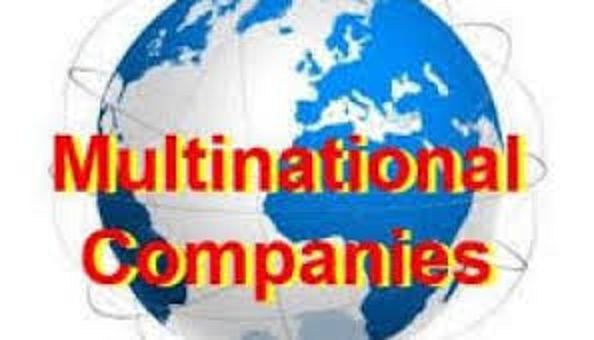Types of Taxes Relevant to Multinationals
Types of Taxes Relevant to Multinationals
Types of Taxes Relevant to Multinationals Nigeria, Africa’s largest economy, offers significant opportunities for multinational
corporations (MNCs) in sectors like oil and gas, telecommunications, technology, and
manufacturing. The 2024 tax reforms, enacted through the Tax Administration Bill,
modernize Nigeria’s tax system, enhance revenue collection, and align with global
standards. For MNCs, understanding the key tax types; Value Added Tax (VAT), Company
Income Tax (CIT), Pay As You Earn (PAYE), Excise Duty, and the Development Levy is
critical for navigating compliance, managing risks, and leveraging opportunities in Nigeria’s
dynamic market.
This article outlines these tax types, their new provisions under the 2024 reforms,
implications for MNCs, compliance challenges, and best practices for seamless adaptation.
1. Value Added Tax (VAT)
Description: Value Added Tax (VAT) is a consumption-based tax applied to goods and
services at each stage of production and distribution, collected by businesses on behalf of
the government. It targets a broad range of transactions, including digital services, to
capture revenue from Nigeria’s growing economy.
New Provisions in 2024 Reforms:
● Rate and Scope: The VAT rate remains at 7.5% to avoid inflationary pressures, but
its scope now includes digital and non-resident service providers under Significant
Economic Presence (SEP) rules, targeting e-commerce platforms, streaming
services, and cloud software vendors.
● Digital Invoicing: Businesses must issue digital VAT invoices, integrated with the
proposed National Revenue Service platform (potentially replacing TaxPro Max),
featuring unique invoice codes and timestamps to reduce underreporting.
● Filing Requirements: Monthly VAT returns are due by the 21st of the following
month, with stricter enforcement for digital platforms.
Implications for MNCs:
● Compliance Burden: MNCs, particularly in tech and digital services, must register
for VAT in Nigeria, even if non-resident, and upgrade enterprise resource planning
(ERP) systems to meet Federal Inland Revenue Service (FIRS) digital invoicing
standards.
● Cost Impact: The expanded VAT scope increases operational costs for digital
services, with MNCs potentially passing costs to consumers or absorbing them,
impacting margins in price-sensitive sectors like telecommunications.
● Consumer Dynamics: Price adjustments due to VAT may affect competitiveness in
Nigeria’s market.
Compliance Challenges:
● Integrating systems with digital invoicing platforms.
● Ensuring non-resident suppliers comply with SEP rules for cross-border
transactions.
● Managing increased FIRS scrutiny through AI-assisted audits.
2. Company Income Tax (CIT)
Description: Company Income Tax (CIT) is a direct tax levied on the profits of companies
operating in Nigeria, designed to generate revenue from corporate earnings. It applies to
both resident and non-resident companies with taxable activities in the country.
New Provisions in 2024 Reforms:
● CIT Rate: The reforms retain the 30% CIT rate for companies above the small
business threshold (revised to ₦50 million annual turnover), despite initial proposals
for a 25% rate.
● ETR Top-Up Tax: A limited Effective Tax Rate (ETR) measure applies to companies
with significant revenue (proposed threshold: ₦20 billion, pending finalization),
requiring a top-up tax if their ETR is below 15%, aligning with global minimum tax
principles despite Nigeria’s non-adoption of OECD’s Pillar 2.
● Intangible Assets: Capital allowances now cover intangible assets like software,
patents, and licenses, with a 1% notional value recorded for audit purposes.
● Education Tax: The 2.5% education tax has been eliminated, simplifying
compliance.
● Professional Services: Firms in law, accounting, or consulting are excluded from
small business exemptions, facing full CIT obligations.
Implications for MNCs:
● Tax Burden: The 30% CIT rate, combined with the 15% ETR top-up tax, increases
liabilities, particularly for high-profit MNCs in oil, gas, or tech sectors.
● Intangible Relief: MNCs benefit from capital allowances on intangibles (e.g., a ₦10
million software license amortized at 20% annually), reducing taxable profits.
● Complexity: Large MNCs must calculate jurisdictional ETRs for top-up tax
compliance, requiring advanced tax planning.
Compliance Challenges:
● Reconciling the 30% CIT rate with the 15% ETR cap and ensuring allowances stay
within the 70% deductible limit.
● Preparing for top-up tax calculations, especially for global operations.
● Maintaining audit-ready schedules for intangible assets.
Best Practices:
Update transfer pricing documentation annually to support ETR calculations.
Leverage capital allowances on intangibles to optimize tax liabilities.
Use tax software to track ETR and ensure top-up tax compliance.
3. Pay As You Earn (PAYE)
Description: Pay As You Earn (PAYE) is a system for collecting personal income tax from
employees’ salaries, where employers deduct and remit taxes to state authorities. It
ensures timely tax collection from individuals employed by businesses, including MNCs.
New Provisions in 2024 Reforms:
● Unified Tax ID: A new Tax ID replaces the Tax Identification Number (TIN),
integrating VAT, CIT, and PAYE filings for streamlined administration.
● PIT Structure: The progressive Personal Income Tax (PIT) structure likely persists,
with exemptions for low earners (e.g., below ₦800,000 annually) and non-resident
employees taxed only for services rendered physically in Nigeria.
Implications for MNCs:
● Streamlined Administration: The Tax ID system simplifies PAYE filings, reducing
overhead for MNCs with large or diverse workforces.
● Workforce Flexibility: Exemptions for low earners and non-resident employees
support hiring remote or expatriate workers.
● Global Talent: Digital integration of the Tax ID facilitates compliance for MNCs with
cross-border employees.
Compliance Challenges:
● Integrating payroll systems with the Tax ID framework.
● Ensuring accurate employee data alignment across federal and state tax authorities.
Best Practices:
● Implement payroll software compatible with the Tax ID system.
● Conduct regular audits of employee tax records for compliance.
4. Excise Duty
Description: Excise Duty is an indirect tax imposed on specific goods and services
produced or provided in Nigeria, targeting items like tobacco, alcohol, and potentially
telecommunications services to generate additional revenue.
New Provisions in 2024 Reforms:
● Expanded Scope: Potential new excise duties on services (e.g., a proposed 5%
duty on telecommunications) are under review, alongside increased duties on goods
like tobacco, alcohol, and non-alcoholic beverages.
● Digital Compliance: Digital VAT invoicing requirements may extend to excise
duties, necessitating system upgrades.
Implications for MNCs:
● Cost Increases: Telecom MNCs (e.g., MTN, Airtel) face higher costs if the 5% duty
is implemented, potentially passed to consumers in a price-sensitive market.
● Manufacturing Impact: MNCs producing excisable goods encounter margin
pressures or price hikes.
● System Upgrades: Digital compliance mandates require ERP adjustments for real-
time FIRS integration.
Compliance Challenges:
● Uncertainty around service-based excise duties complicates budgeting.
● Aligning excise duty reporting with digital invoicing systems.
Best Practices:
● Monitor FIRS guidelines for updates on excise duties.
● Integrate excise duty tracking into ERP systems for compliance.
5. Stamp Duty
Description:
Stamp Duty is a tax imposed on specific legal instruments, including agreements,
contracts, and property-related documents. It is designed to formalize and authenticate
high-value transactions, ensuring legal enforceability and contributing to government
revenue. Historically underutilized, the 2024 Tax Administration Bill overhauls the stamp
duty regime to reflect modern economic realities and promote digital compliance.
New Provisions in 2024 Reforms:
Digital Stamping: The new framework introduces electronic stamping via
www.stampduty.gov.ng, replacing manual processes with electronic tagging, digital
certification, and traceable timestamps.
Chargeable Instruments: The Bill clearly defines chargeable instruments, such as service
contracts, loan agreements, share transfers, and lease documents, removing previous
ambiguities.
Payment Timeline: Stamp duty must now be paid within 30–40 days of executing the
instrument, with penalties for late compliance.
Implications for MNCs:
Transaction Scrutiny: MNCs entering into service agreements, IP licensing, financing
arrangements, or intra-group contracts in Nigeria must now assess stamp duty exposure.
Instruments previously ignored for stamping may now trigger enforcement actions.
Digital Transition: The shift to electronic stamping necessitates that MNCs align their
legal and tax workflows with digital platforms, ensuring real-time document processing and
authentication.
State-Level Compliance Pressure: With states entitled to a larger revenue share, MNCs
operating across multiple jurisdictions may face increased audit attention from state tax
authorities.
Best Practices:
● Conduct a stamp duty exposure review across contract types and jurisdictions.
● Automate digital stamping via ERP or legal workflow tools integrated with
stampduty.gov.ng.
● Establish an internal compliance calendar to monitor and meet stamping deadlines.
● Engage local advisors to interpret evolving guidance, especially for intercompany
agreements and cross-border documents.
6. Development Levy
Description: The Development Levy is a new tax targeting large corporations to fund
infrastructure and youth empowerment initiatives, designed to support Nigeria’s
development goals without being deductible from other taxes.
New Provisions in 2024 Reforms:
● Levy Structure: A 4% levy on assessable profits applies to large corporations
(turnover above ₦500 million), non-deductible for CIT purposes, replacing an initial
flat ₦1,000,000 proposal.
● Purpose: Funds infrastructure and youth empowerment initiatives.
Implications for MNCs:
● Increased Costs: A company with ₦1 billion in assessable profits faces a ₦40
million non-deductible levy, impacting financial planning.
● Infrastructure Benefits: Effective use of levy funds could improve roads and power,
reducing operational challenges.
● Planning Complexity: The non-deductible nature requires separate budgeting.
Compliance Challenges:
● Incorporating the levy into tax planning.
● Ensuring accurate profit assessments for levy calculations.
Best Practices:
● Engage local tax consultants to assess levy applicability.
● Budget the levy as a distinct cost, separate from CIT.
Broader Compliance Challenges for MNCs
● Regulatory Shifts: The 2024 reforms consolidate prior Finance Act changes,
requiring ongoing policy monitoring.
● Digital Compliance: Digital VAT invoices and the Tax ID system demand significant
IT investments.
● Audit Risks: AI-assisted FIRS audits heighten scrutiny on VAT, transfer pricing, and
the Development Levy.
● Double Taxation: Expanded SEP rules increase permanent establishment risks,
necessitating reassessment of Double Taxation Agreements (DTAs).
Best Practices for MNCs
● Leverage Technology: Automate VAT, PAYE, and excise duty filings via platforms
like TaxPro Max.
● Engage Local Expertise: Partner with firms like SOW Professional Services Ltd
(www.sowprofessional.com, 07038254989) to navigate complex provisions.
● Update Transfer Pricing: Maintain OECD-compliant documentation to mitigate
audit risks.
● Optimize Incentives: Utilize capital allowances, pioneer status, or export zone
benefits to offset tax burdens.
● Monitor Updates: Stay informed on FIRS guidelines and policy clarifications.
Critical Analysis
The 2024 tax reforms balance modernization and revenue goals but pose challenges for
MNCs. The 7.5% VAT rate and education tax elimination offer relief, while the 30% CIT
rate, ETR top-up tax, and 4% Development Levy increase costs. Capital allowances on
intangibles benefit tech MNCs, but digital compliance and SEP rules demand investment.
Ambiguities around excise duties and limited PAYE details create planning hurdles. MNCs
must strategically manage compliance costs while leveraging Nigeria’s market potential.
Conclusion
The 2024 tax reforms introduce critical tax types—VAT, CIT, PAYE, Excise Duty, and the
Development Levy—that reshape compliance for MNCs in Nigeria. By adopting robust
compliance systems, engaging local expertise, and optimizing incentives, MNCs can
navigate these changes and thrive in Nigeria’s dynamic market.
Get Started Today!
To know more about Types of Taxes Relevant to Multinationals, kindly contact us at :
E-mail: care@sowprofessional.com
Website: www.sowprofessional.com
Phone: 07038254989
Whassapp: 07038254989




